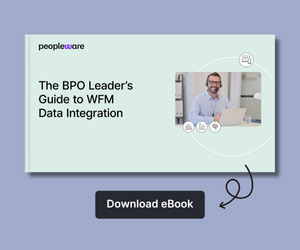In the Digital Era, the customer is more than ever the central element of any commercial strategy. Managing the Customer Experience in all of its phases is an operational necessity for each company, but achieving a business objective efficiently and efficaciously isn’t ordinary matter.
The elements to be considered and systematized are numerous and depend on several variables, especially to face multicultural and multilingual customer needs.
The Complexity of Customer Experience Management
According to Eurostat in Europe alone, there are over forty seven thousand multinational companies, UK ones excluded, realities that had a yearly growth of 24%. For the vast majority, 84% of the cases, the decision-making is kept in Europe.
This picture is useful in order to understand the complexity of customer experience management considering that the EU counts 28 countries, but the continent includes 44. Needless to say that this complexity further increases when the field of action becomes planetary.
How to Comply with the Complexity: the Outsourced Multilingual Hubs
Therefore international or global companies must be able to deploy adequate solutions to comply with the complexity, the kind that shall offer local adapted solutions keeping nevertheless a global strategy.
One of these is to have centralised multilingual customer care. Outsourced multilingual hubs is probably the best solution for Companies, multinationals or startups, which need to test some potential markets, or who manage businesses with an international footprint but without a critical size to have a customer care located in every country
There are several benefits to such a choice. The first and most evident one is a substantial cost optimization as well as location, management team structure, multilingual profile, technical infrastructure and IT assets.
Another big advantage of Outsourced Multilingual Hubs is the timing of implementation and the scalability. Companies that have chosen this solution, such as Nissan Europe, confirm that the benefits are numerous and tangible.
How to Organize an Outsourced Multilingual Hub
An outsourced multilingual hub can be organised faster and, more importantly, it can be flexible and scalable. Having a variable number of operators depending on the season, events such as the launch of a new product or as well the eventuality of sudden growth in requests represents a considerable benefit.
Another fundamental element offered by a multilingual hub is the process simplification across the geographies of the brand, and a more consistent customer experience.
To harmonize customer care procedures keeping agility to manage local specificities, on a large scale, not only makes the processes simpler and more linear, but also to control and modify them more quickly when necessary.
Thanks to a centralized Multilingual hub for managing customer relations, the company is able to obtain an overall view not only of the processes, but also of the problems that arise in one or more countries, responding promptly to any requests.
In addition, the use of a hub means that the entire Customer Care team can be managed within a single regulatory environment, assets that are particularly useful in Europe, for example, to ensure that they meet the stringent requirements of the GDPR.
The Advantages of Multilingual Hubs
The advantages of a multilingual hub are therefore obvious and tangible.To manage the complexity and future challenges, it is necessary to rely on well-established realities with proven expertise in this field.
Comdata Group, a leading European company in Customer Management BPO is able to add further value to multilingual hub services.
Thoroughly dealing with both customer interactions and process management, Comdata is able to offer more efficient and effective responses to clients, relying also on the ability to integrate the companies various software platforms.
The tools and processes standardisation represents a key element to achieve a single knowledge base and to have a single method for performing the quality of the services.
This result is achieved thanks to the high competence, acquired in the human resources activities, which then allows finding the best possible profiles for every single business.
Thanks to a unique and integrated approach, it is also possible to immediately have a global picture of customer care activities, but also it is possible to act promptly both locally and on a full-scale level.
Comdata, the Perfect Strategic Partner
Among the competitive advantages of Comdata there is also the ability to natively manage the plurality of user contact channels. Nowadays more and more Customers use different ways to reach out to businesses, both analogue and digital, from phone calls to web messaging, up to comments on social platforms.
Having an IT hub able to work in a multi-channel environment is therefore essential, as it is being able to ensure maximum transparency of the processes and absolute security in data management and protection.
Operating in 22 countries, with more than 110 sites and 30 languages, Comdata is not only able to offer top-level multilingual hubs, respecting all the most stringent international certifications, but also it can be a valid candidate as a strategic partner.
In this way it is possible to transform the outsourced service into an internal asset for companies, helping them to better manage relations with users, but above all to readily seize business opportunities.
Watch this video about the benefits of Multilingual Hubs.
Author: Guest Author
Published On: 6th May 2021 - Last modified: 22nd Dec 2023
Read more about - Guest Blogs, Comdata















